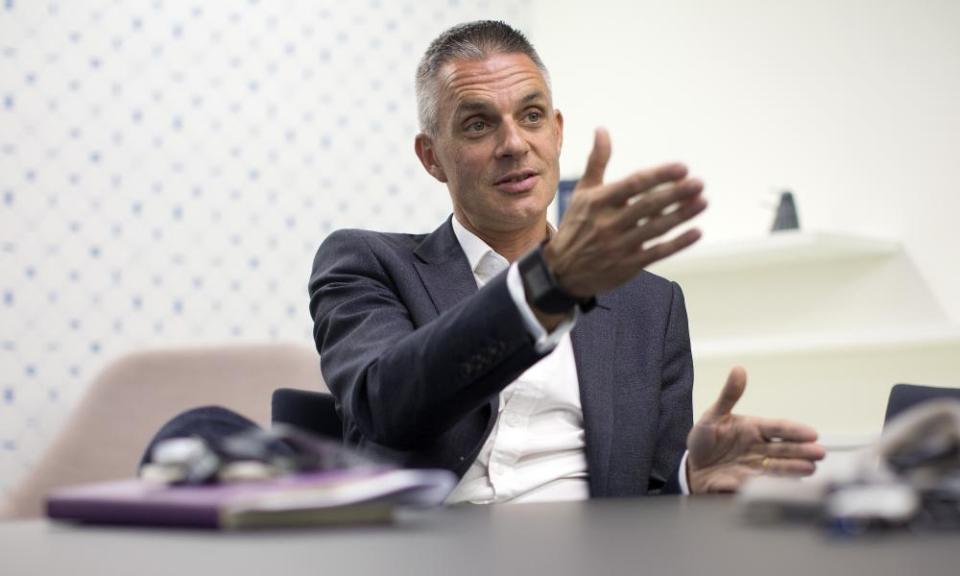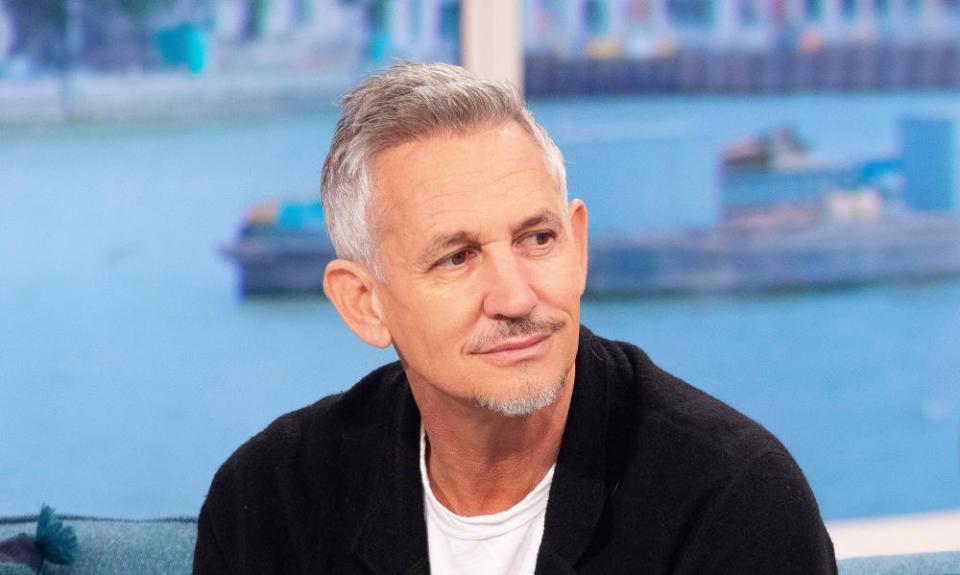BBC broadcasters furious over new rules restricting ‘partisan’ use of Twitter

Regular freelance contributors and BBC broadcasters have been left angry and confused this weekend in the wake of the new director general Tim Davie’s comments about restrictions to their use of Twitter.
Speaking in Cardiff on Thursday, Davie called for restraint and greater impartiality from presenters and reporters. “If you want to be an opinionated columnist or a partisan campaigner on social media then that is a valid choice, but you should not be working at the BBC,” he said.
The stern caution is thought to be aimed at many of the BBC’s biggest names, some of whom, including the political editor Laura Kuenssberg and television interviewer Andrew Neil, have been accused of letting their views show in their online comments. Kuenssberg denies that her impartiality slips.
However, some of the most high-profile BBC figures, including the Match of the Day presenter Gary Lineker, are unlikely to be covered by Davie’s edict because they work outside news and current affairs.
But this weekend, as BBC tweeters noticeably held fire online until things become clearer, many of those who are frequently employed in Broadcasting House but are not on staff wondered if the new rules will include them.

“Surely we are employed because of our knowledge, to give an overview,” said one long-term specialist contributor. “We are regularly retweeted by the BBC publicity machine because they know we help to publicise content. If we are not allowed to have personal voices this will not work. I think the BBC will soon find that new rivals, such as Times Radio, will be stepping up their own social media punditry instead.”
A large number of those who front programmes on radio and television are employed on a temporary basis, although they may be closely associated with the BBC brand. When social media first exploded onto the news and current affairs world, facilitating 24-hour reactions and commentary, many prominent correspondents were encouraged to build up a personal online following and to tweet breaking news and analysis as it happens.
Signs the BBC was rowing back from this position were first reported by the Observer last year and Fran Unsworth, BBC head of news, is thought to have repeatedly called for more discipline from her reporting teams before Davie took the helm last week.
A well-known BBC presenter who wanted to remain anonymous told the Observer that a meeting has been called this week by management that is expected to clarify the new rules. The freelance contingent are already said to be up in arms about changed tax arrangements brought in without warning that have seen many facing large bills.
“Bob Shennan, the group managing director, had to face questions from hundreds of angry freelancers at a recent meeting and he was not at all pleased. He seemed to feel he had been ambushed,” said one freelancer.

The art historian and broadcaster Bendor Grosvenor was one of the first to express dismay about Davie’s speech. “I can absolutely understand this in news and current affairs,” he wrote on Twitter. “But across the whole BBC? It would certainly rule me out. (Who cares?, you say, and fine, I am a tiny, tiny player here) but given the ubiquity of social media in our lives now is it actually practical? Because if the BBC can only hire people with either no opinions or afraid to express opinions, it might find its pool of available staff to be only the dull and timid. The BBC thrives on innovation and creativity. Might it be better to focus on balance, rather than silence?”
The plan to stop biased tweeting will be further complicated by the new intake of bright journalistic talent. Newsnight’s Lewis Goodall and the award-winning reporter Rianna Croxford have both been singled out by right-wing commentators for pursuing what they claim are political prosecutions and campaigns rather than purely reporting the facts.
This weekend Croxford, a community affairs correspondent who has covered a wide range of stories for the BBC, posted a response on Twitter underlining her impartiality, both now and before she worked for the BBC.
But a younger generation of reporters who tend to communicate and receive all their news on Twitter, like their peers, and who are interested in journalism as a tool of change, will find a switch back to old-school limitations more difficult.
Even more experienced BBC presenters often have separate Twitter accounts which they use to promote their wider journalism and which may reveal their political positions. Andrea Catherwood’s personal site on Twitter has a “pinned tweet” which expresses her anger about the government’s handling of the education crisis caused by Covid-19.
She writes: “If we take one thing out of this shitshow of exam chaos, it’s that we must start preparing now for how students will take A-level and GCSEs in 2021. We cannot repeat these mistakes.”

